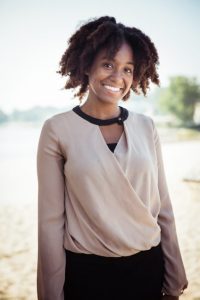A Jumpstart in STEM
Steven (CAS’84) and Diane Rudis endowed an education for this future doctor
Steven (CAS’84) and Diane Rudis endowed an education for this future doctor
As a child in Jamaica, Tiffany Peters thought she’d spend her life on the island. She’d go to the local university, like her friends, then maybe teach. Or she’d work in sales, like her mom, or for the government, like her dad.

Then, when Peters (CAS’20) was 16, she was forced to consider a different future. She and her mother immigrated to the United States seeking new opportunities and settled in Queens, N.Y. A few years later, when it came time to apply for college, Peters, who aspired to pursue scientific research, quickly found BU rising to the top.
“When I looked at how the University spends its money, so much goes to research,” she says. “Then I looked at how much is going on here, and how easy it is to get involved. I really had my heart set on BU. I would have been heartbroken if I couldn’t come.”
While education had always been the family’s top priority and Peters’ parents had been putting some money aside for college, it wasn’t enough.
So much has been opened to me since I came to BU. And without the scholarship, I would never have been able to afford it.
— Tiffany Peters (CAS’20) —
That’s where Steven (CAS’84) and Diane Rudis came in. In 2015, they endowed the Dr. Steven P. and Diane A. Rudis STEM Scholarship Fund for undergraduate women studying science, technology, engineering, or mathematics.
The couple “wanted to do something for women,” says Rudis, a doctor who specializes in emergency medicine. Together, they decided to focus their efforts on STEM, a field in which women are historically underrepresented. “We were happy to do this,” Rudis says. “I hope more people will donate and help others with an education.”
Peters, who’s majoring in molecular biology and biochemistry with a minor in deaf studies, says the scholarship has been life-changing. “So much has been opened to me since I came to BU,” she says. “And without the scholarship, I would never have been able to afford it.”
She plans to attend medical school and pursue a residency in a hospital “that specializes in treating deaf people.” Then, she might go into primary care or gynecology—and perhaps even return to the Caribbean.
“There’s not a lot of help for people with disabilities in Jamaica,” she says. “If I ever got the chance, I would go home and practice in Jamaica, in primary care. There are so many places that need it. And if I could do it for free, I would.”